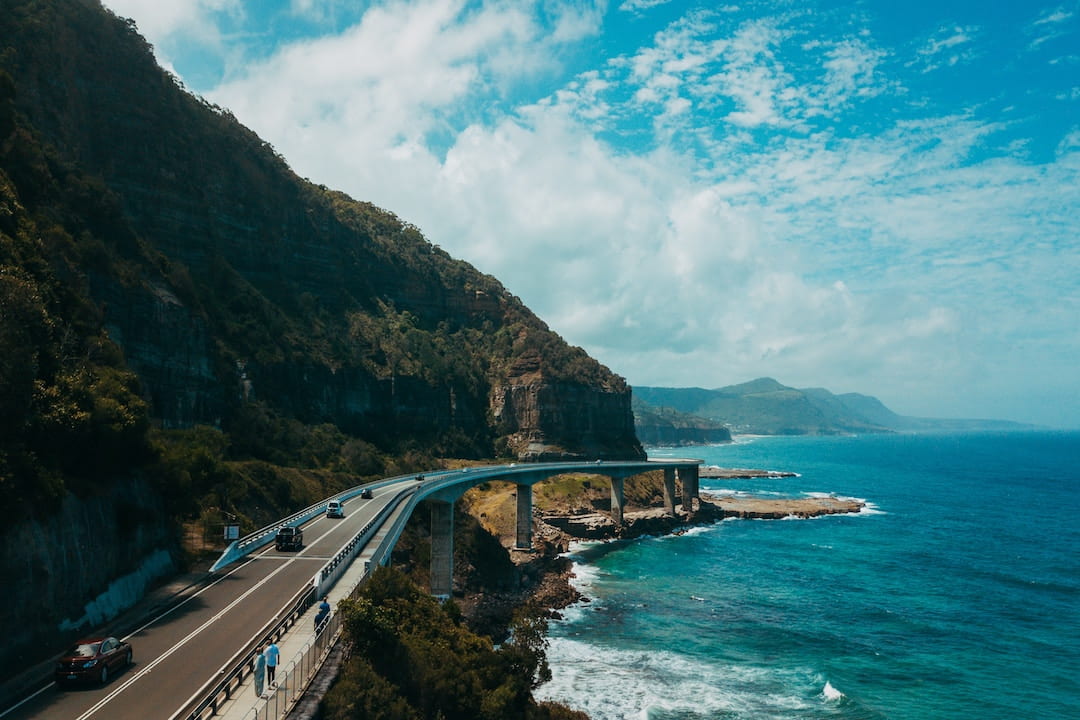Australia is known for being home to the world’s best beaches, cutest (and occasionally the scariest) animals, and some of the nicest people you’ll ever meet. It’s only natural that at some point, all
Whether you’re travelling on a shoestring budget filled with hostels and public transit or you have the funds set aside to spend two weeks in luxury, there’s a perfect vacation in Australia just waiting for you to book.
Travelling on a Shoestring Budget
- Cost per day: $60 – $70
- Cost for two weeks: $850 – $1,000
Accommodation
Hotels in Australia can be on the expensive side, especially if you’re in any of the major cities. Skip hotels altogether and opt for hostels instead. There are tons of epic hostels in Australia that make for great places to sleep, cook, do laundry, and make new travel friends.
If you’re not interested in hostels, camping is another great way to see the country on the cheaper side. Just make sure you do your homework and make the necessary campsite bookings ahead of time.
Food & drinks
If you’re really trying to save on money, consider investing in a camping stove. That way instead of ordering food at restaurants, you can cook your own meals instead. The cost of groceries is significantly lower than anything you would order at a sit-down restaurant. Alternatively, use the kitchen at the hostels you stay at.
If you have to eat out, try eating a bigger meal earlier in the day so you can take advantage of lunch specials. It’s easy enough to find great food for $15 or less when dining anytime before 4 pm.
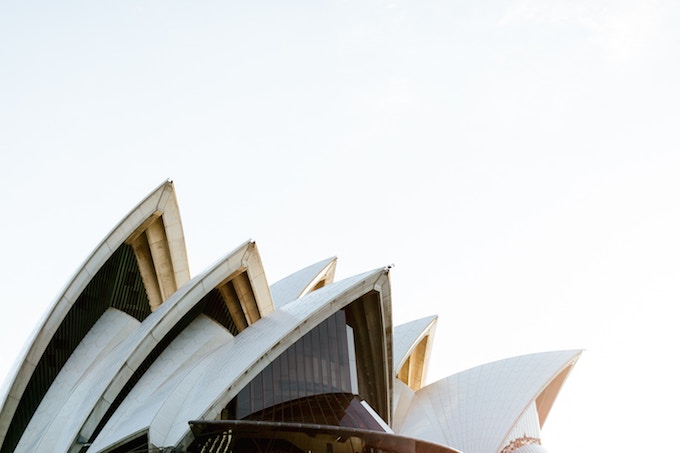
Transportation
Greyhound buses are widely considered the most affordable way to get around Australia. The bussing system is really extensive, meaning you can cover a lot of ground for a fraction of what flying would cost.
If you don’t want to bus, renting a car is your next best option. Smaller vehicles can be hired for around $20 a day, and if you have a travel companion and split the cost, that doesn’t set you back too much.
For inner city travel, public transportation will always be more affordable than taxis or Ubers. Buying a bus pass is a great idea, or even consider renting a bike so you can explore where you’d like.
Experiences
Some experiences in Australia can be really expensive, while others are free. Most attractions are going to put you back at least $25, but of course, public places are always open at no cost. That means public gardens, beaches, shopping centres, and some galleries and museums have no entry fee.
If there is an organized tour or particular place you’d like to visit, check ahead of time to see if they have any coupons, discount nights, or free hours. It’s amazing how many places in Australia offer discounts to students, coupons for couples, or free hours late in the day.
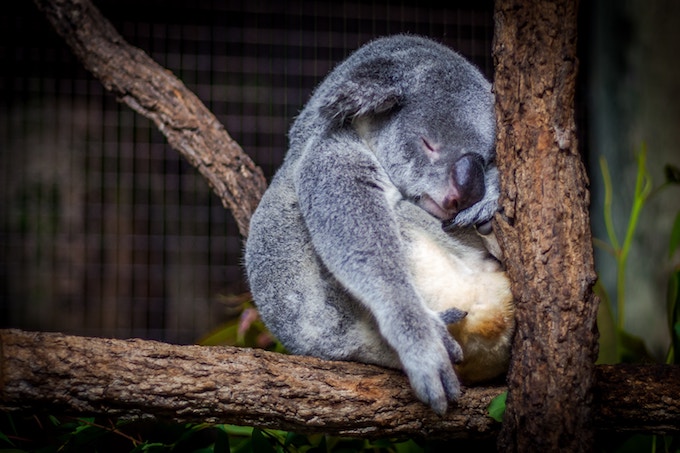
Travelling on a Mid-Range Budget
- Cost per day: $80 – $130
- Cost for two weeks: $1,100 – $1,800
Accommodation
On a mid-range budget, you’ll be able to find hostels with private rooms, providing you with a bit more comfort and privacy without a huge price tag. Plus, you’ll still be able to take advantage of the hostel amenities that will also help you save.
Airbnb’s are another great option, especially if you’re travelling as a group. If you rent out an entire home or apartment and split the cost, you’ll be able to afford something a bit higher-end without damaging your budget.
Alternatively, lots of travellers have begun opting for van rentals as part of their savings strategy. A campervan allows you to sleep, drive, and cook all from the comfort of your van, so in many ways, you’ll end up saving more in other aspects of your trip as well.
Food & drinks
With a bit of extra money to spend on food, you’ll more or less be able to eat out at least once a day. Maybe opt for fast-food for breakfast, but splurge a little on drinks and dinner. A nice meal can put you back anywhere from $25 to $60, so just watch which restaurants you eat at and look for specials.
If you do end up staying at a hostel or more affordable hotel, make sure you ask if breakfast is included. Some of the nicer hostels offer complimentary snacks and coffee in the morning, so grab something on the go and save later.
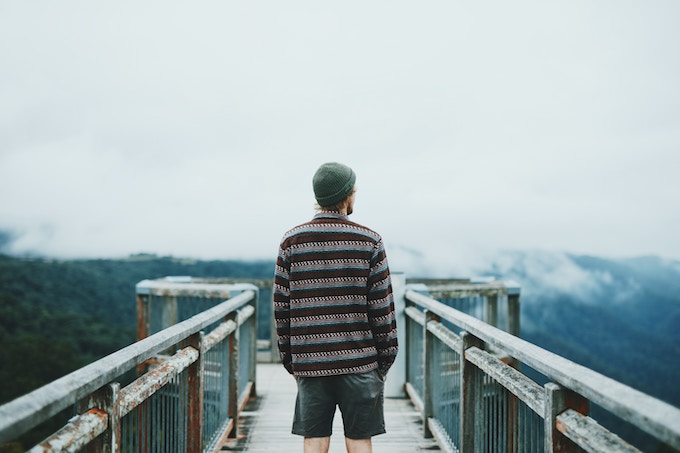
Transportation
Australia has an excellent rail system that can get you almost any place you’d want to go. Used frequently by travellers, Rail Australia has a number of rail passes that can save you money depending on how frequently you’re on the move.
Renting a car is always a good idea and with a bit of money to spend, you’ll be able to get something more comfortable than a compact sedan. Just make sure you get the proper insurance so you’re covered should anything go wrong – repairs can be very expensive, especially on the nicer models.
Once you’re in a city, splurging on taxis shouldn’t break your budget, as long as you’re not cabbing everywhere you go. Try to budget your cabs daily and walk or use public transit if you start to go over.
Experiences
With a bit more to spend on activities, you’ll definitely be able to afford to visit the more popular sites, like zoos, wine tastings, or boat tours. Always ask if there are any promotions currently running that might save you a buck or two.
If you’re looking to see a bit more of an area and have the time to explore, an organized tour can be a great use of your money. Not only will you have access to a professional tour guide, but often times meals, park entrances and accommodations are covered within the cost.
Check out these awesome and affordable 3-day tours around parts of Australia.
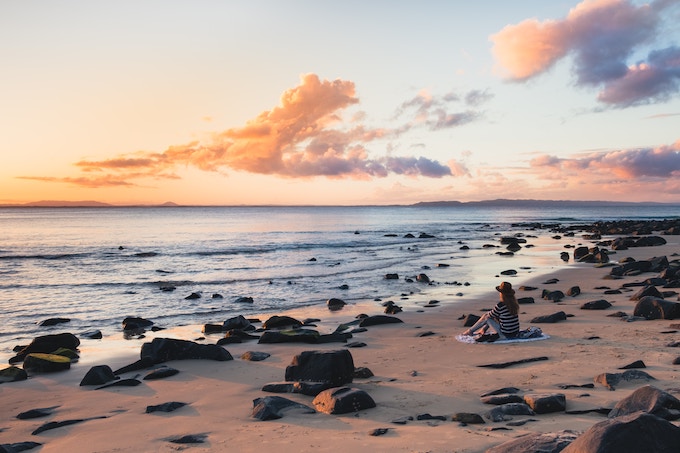
Travelling on a Luxury Budget
- Cost per day: $200 or more
- Cost for two weeks: $2,800
Accommodation
5-star hotels in Australia can range anywhere from $150 t0 $1,000 a night – so do your homework and book what you’re comfortable with. If you’re booking a hotel in a major city, right beside the beach, it’s going to be more costly, so always consider your location.
Luxury Airbnb’s offer villas, condos, and 5-star apartments that can often be found for a reasonable price, especially if you’re not travelling alone. It’s always a good idea to check out their bookings before over-spending on a luxury hotel.
Food & drinks
Finding fine dining restaurants in Australia isn’t hard, especially if you’ve been saving for your trip and are ready to indulge. Eating out for every meal will get expensive though, so make sure you’ve set aside at least $100 a day for food if you planning on eating out for breakfast, lunch, and dinner.
While tippings in Australia isn’t considered necessary, it’s always appreciated by your dining staff, especially if you’re in a fine dining restaurant. Just remember to set aside a bit of budget so you can adequately tip when you enjoy a meal out.
Transportation
Australia is big, so the most convenient way to get around is definitely by booking flights from city to city. Though not always the most adorable option, if you have the money to spend, flying will save you a lot of time, allowing you to see more in your two-week stay.
If you’re set on driving yourself, you could always opt for an RV or high-end campervan rental. These home-on-wheels are an increasingly popular way to see the country but are on the more expensive side. Ranging from $200 to $700 a day, you’ll really need a luxury budget in order to afford this option.
Experiences
With a luxurious budget, there are endless possibilities of things to do in Australia. Enjoy a night at the opera, take a one-on-one surfing class, embark on a hot air balloon ride, take a flight on a seaplane, go skydiving, hire a private yacht… The world is yours when the budget isn’t a concern.
Regardless of your budget, touring around Australia is a once in a lifetime experience that is bound to be amazing, not matter how much you spend.

